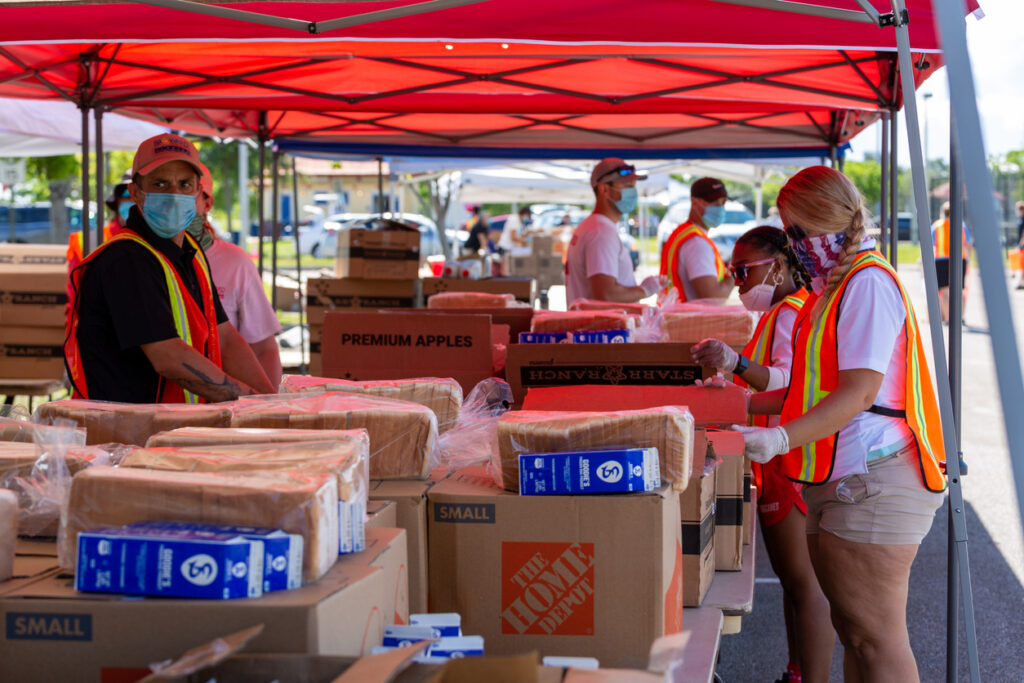It had started to rain while I was in the grocery store so before leaving I pulled the hood of my rain jacket over my head. With my head covered and a protective mask over my mouth and nose, I noticed my reflection in the door as I exited the store and thought: There is nothing normal about this new normal.
We hear that phrase tossed around, perhaps as an attempt to soften the blow that life as we knew it will not be the same for an undetermined length of time. With social distancing a new norm, the medical, economic and psychological implications of closing schools and non-essential businesses, and the prohibition of public gatherings of more than 10 people has yet to be realized.
For the most part, people have been compliant. After all, we have a history of adapting. Prior to 9/11, no one could have imagined that air travel would entail bag screening and full body X-rays before boarding a plane. As strange as it seemed when first implemented, the practice has become normative.
In times of crisis, people tend to come together, trying to help and support those whose lives have been impacted more than their own. Learning that we are not in control concerning life and death situations can be frightening, and while it tends to bring out the best, it can also bring out the worst.
Alongside countless acts of kindness are those who blame others, shift responsibility and protest decisions made for the common good. While negative behavior may relieve frustration temporarily, it exacerbates long-range solutions and squanders precious time that could be used in a more productive manner.
Amid the staggering number of lives lost are countless sacrifices by those who put their lives at risk, which suggests the time to rethink the way we value people and jobs is here. The dedication of health care workers has never been more deeply appreciated, but these times have also inspired newfound appreciation for workers who clean hospitals and dispose of waste.
People in the food industry — from meat packers to grocery cashiers — are risking their lives, some paying the ultimate price so that we can eat. The question is: When the crisis is over, will we go back to quibbling over whether they deserve no less than $15 an hour for the work they do or will we continue to esteem the work they do as an important societal contribution to the health and well-being of our nation?
Not every person or family has been equally disrupted by COVID-19. Those of us whose lives have not been altered should consider how to help those whose lives have been upended. If your income has not been decreased or eliminated, why not consider donating the stimulus check you received to someone who needs it to pay their rent or put food on the table?
If you don’t personally know someone in such dire circumstances, there are plenty of community agencies and Church groups who can direct your donation to people who need it most.
Rather than viewing the pandemic solely as a crisis, looking at it as an awakening can give us another perspective. As I walk around our neighborhood, I am heartened by the many young parents I see spending time outdoors with their children.
Families riding bicycles, fathers and sons playing catch, mothers and daughters decorating sidewalks with chalk drawings are one of the unexpected pleasures of sheltering in place. With retail stores closed, we are learning how many things we don’t need, offering an opportunity to reassess personal and national values that are more in line with Gospel values.
May is a fitting time to ask Mary to help make the lessons we are learning our new norm. Her Magnificat reminds us that God lifts up the lowly and feeds the hungry while sending the rich away empty, scattering the proud and casting the mighty from their thrones.
Let’s pray that we fall into the former rather than the latter group of people. However, given our self-serving nature, we become the person we are called to be only through the grace of God and with Mary’s help.
In his encyclical “Jucunda Semper,” Pope Leo XIII, a great champion of the worker wrote: “Every grace granted in a most beautiful order is communicated from God to Christ, from Christ to Mary and from Mary to us. As every mandate from a king passes through the palace-gates, so does every grace that comes from heaven pass through the hands of Mary.”
May we look to our Mother Mary not only as intercessor, but as model as we continue the journey, mindful that the gifts we have are given to share.

